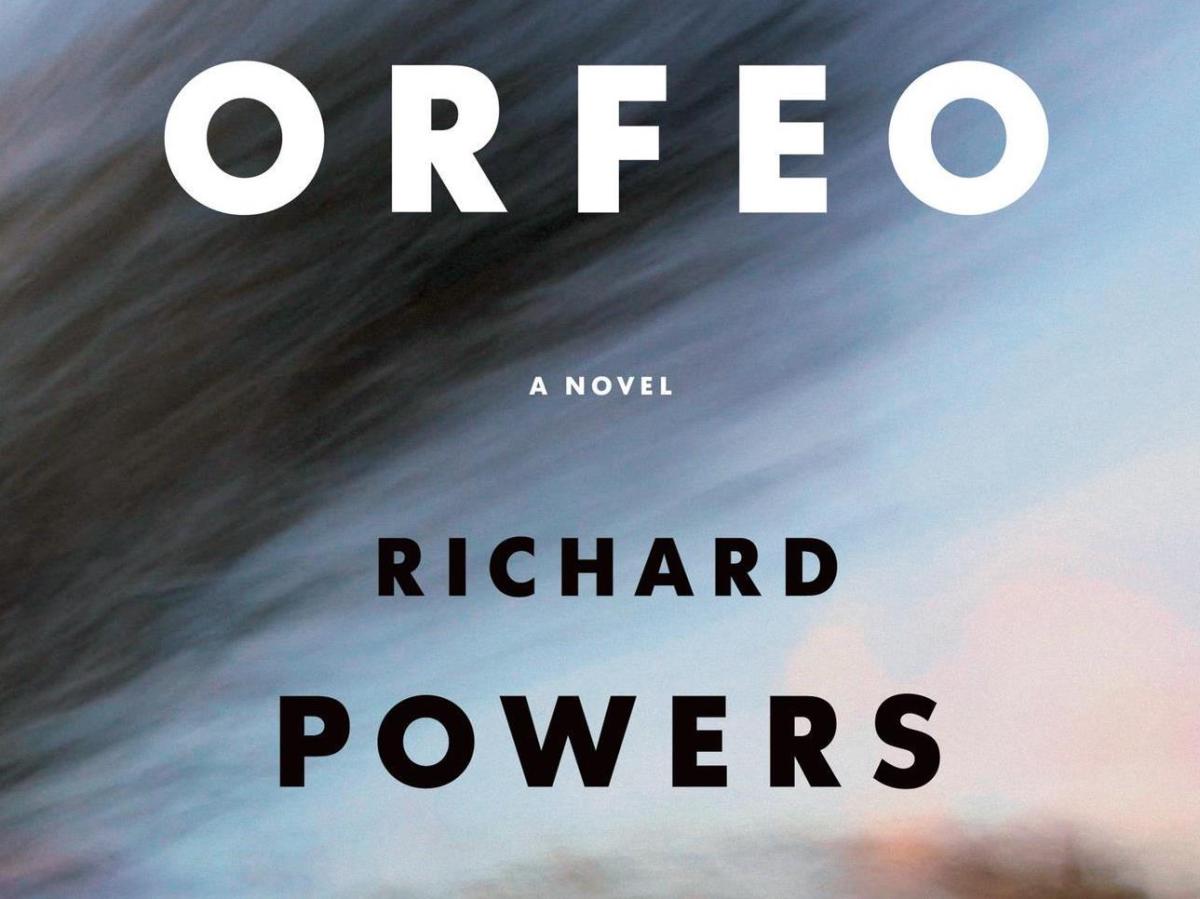Orfeo is the latest novel from American author Richard Powers, exploring music and science in a philosophical thriller rich with thought and meaning. Richard Powers is valued for his ambitious novels exploring the common themes of genetics, chemistry, computer science and music. The author himself possesses a strong talent for music, developing a marked proficiency in vocal music, cello, guitar, saxophone and clarinet in his earlier years.
In the opening of the novel, we are introduced to the retired musician Peter Els, now in his seventies, living alone in a small Pennsylvania college town. His beloved dog dies from a heart attack, and he makes an impulsive and seemingly innocent call to 911, clearly distressed and unsure who else to turn to. One of the police officers approaches Els’s residence, and notices ‘shelves swelled with beakers, tubing, and jars with printed labels.’ He then asks, ‘What are all the petri dishes for?’ That anxious question launches the story in the form of a dual narrative exploring the current and past sequence of events of Peter Els’s remarkable life.
Retired from his unusual career as an abstract avant-garde composer challenging the boundaries of musical composition with dissonant melodic structures and obscure notation, our protagonist develops an excitement for exploring the possibility for manipulating cell organisms – a bizarre, illegal and ambitious endeavor he manages to undertake in the space of his own kitchen. Utilizing skills in research, reading numerous biology textbooks and modifying equipment from his kitchen, Els provokes the attention of homeland security, which causes him to eventually flee from the country, attempting to reconnect with the events of his past.
Basically, it’s great reading a book about Peter Els because Peter Els is an interesting person. Dubbed Bioterrorist Bach by the media, the superb thing about this protagonist is his insatiable curiosity, enthusiasm, energy and hunger for knowledge. Demonstrating a passion for patterns, and desiring intensely to ‘break free of time and hear the future’, Els’s life is convincing and inspiring in its zeal.
But what can we learn about Els the man? Not much. We do know that he is probably a genius. But emotionally? Interpersonally? Powers doesn’t delve too much into it and tends to leave us guessing a little. Furthermore, Peter Els the composer and Peter Els the chemist both seem like totally different people. There is a disconnect between these stages of the man’s life, and in attempting to identify with the integrity of the character I found this to be at times a little tricky.
Els has a neurotic temperament and Powers touches on the paranoia that seeps from his mind in the later stages of his life. Els begins to perceive cameras behind smoky glass windows, and wonders how long it would take for his tracks to be traced. It’s difficult to decipher whether these paranoid episodes in the book are based on actual events, or scenarios constructed in the composer’s mind. Does Peter Els suffer from schizophrenia? A type of paranoid personality disorder? Given the evidence of mental instability aligned with creative genius, it’s highly possible that he does, and this would form the basis for some of the absurdity and impulsiveness to his character.
In Orfeo, sentences are luscious and visual and the author’s insights on music are often unusual. For instance, rests or silences in music are described as ‘the thing that the notes were powerless to reach.’ There are lovely descriptions of how music affects the body in a profound visceral way. Here’s a particularly moving section about a young eight-year-old Peter Els witnessing his own primal reactions to music:
And Peter stands in the surge of these chords, listening to America’s fare-well song. The notes float and rise. They turn speech as pointless as a radio ventriloquist. Light and darkness splash over Peter at each chord change, thrill with no middleman. The pitches topple forward; they fall beat by beat into their followers, obeying an inner logic, dark and beautiful.
Another milky, troubled chord twists the boy’s belly. Several promising parts lead forward into unknown notes. But of all possible branches, the melody goes strange. One surprise leap prickles Peter’s skin. Welts bloom on his forearms. (p.14)
In the life of Peter Els, Powers beautifully illuminates the way in which music alters and has profound effects on the chemistry of the brain.
Unfortunately, however, I find Powers’s descriptions of the musical language of the score a little tedious and exhausting. The beauty of music is a difficult thing to attempt to illuminate in text and I’m just not sure whether Powers should have attempted at all. Parts of the narrative are poetic, but Power fails to adequately narrate how musical contours sound to the human ear.
Occasionally, Powers’s writing is just plain bad. For example: ‘My cultures can’t be called back now. They’re off and doubling, like the brooms of the sorcerers apprentice’. Additionally, sexual scenes in the book are lacklustre, odd and devoid of sensuality. Els and his first love Clara sit ‘stock-still, blood pounding, tangled in each other, listening to the muted reds and russets of dying children.’
Nevertheless, Orfeo is an enjoyable and a very engaging read. Powers has a way of writing that is succinct and relatable. There is also a kind of passive vagueness to his writing which hints at the fanciful while still managing to retain a realistic and cinematic quality. The book is well-paced, and should keep readers on their toes as the bizarre events of the multi-faceted chronological story unfold. Powers’s excessive curiosity in the music and sciences is clearly infectious. Orfeo is also a wonderful meditation on the intensity and sheer obsessive nature of the creative mind.
Rating: 4 stars out of 5
Orfeo
By Richard Powers
Trade paperback
369 pp
RRP $29.99
ISBN: 9781782391623
Atlantic






